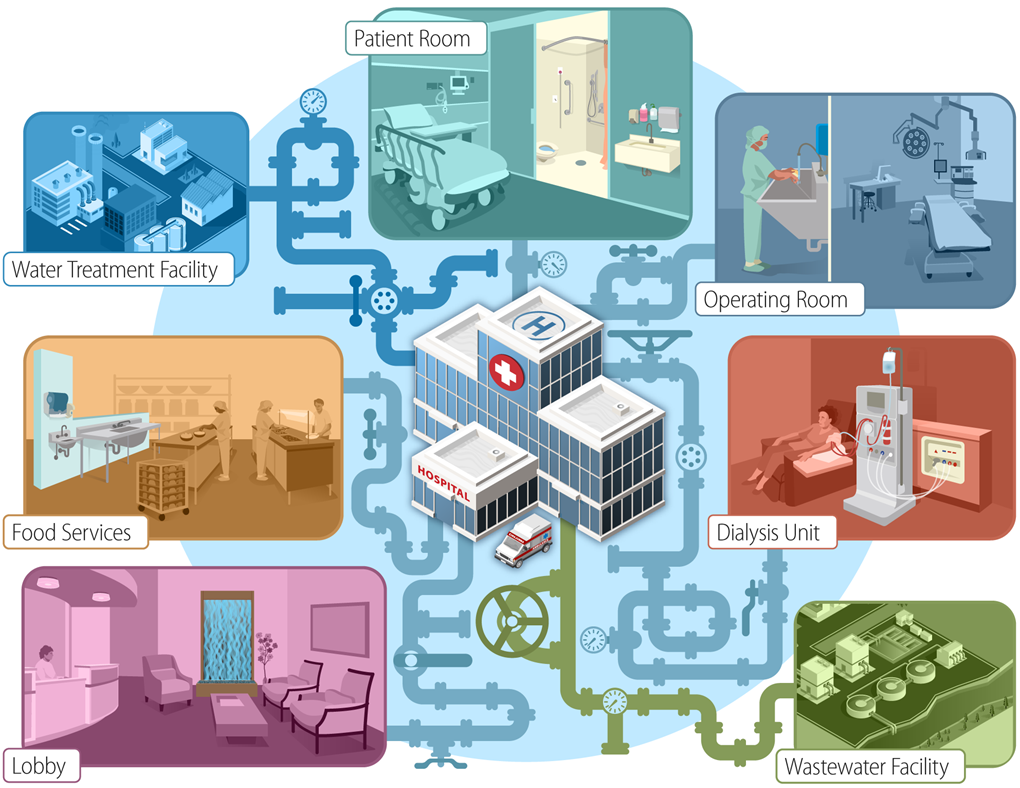Healthcare-Associated Infections
What are healthcare-associated infections?
A healthcare-associated infection (HAI) is an infection that a person can acquire while receiving treatment in a healthcare facility for another condition. There are various types of HAIs, which are often named after the site of the body in which they occur.
Healthcare-Associated Conditions and Related Topics
-
Healthcare-Associated Group A Streptococcus (GAS)
Click Here to Learn More -
Healthcare-Associated Legionnaires' Disease
Click Here to Learn More
Transmission of HAIs via Water Systems
Water can harbor germs that threaten the safety of patients and spread antibiotic resistant pathogens or healthcare-associated infections (HAIs). Water management programs in healthcare facilities are an important way to help protect vulnerable patient populations as well as staff and visitors.
Source: CDC
Transmission of HAIs via the Healthcare Environment
Effective cleaning and disinfection of the healthcare environment and hands of healthcare workers are instrumental in the prevention of healthcare associated infections.
CDC's Core Components of Environmental Cleaning and Disinfection
- Integrate environmental services into the hospital’s safety culture.
- Educate and train all HCP responsible for cleaning and disinfecting patient care areas.
- Select appropriate cleaning and disinfection technologies and products.
- Standardize setting-specific cleaning and disinfection protocols.
- Monitor effectiveness and adherence to cleaning and disinfection protocols.
- Provide feedback on adequacy and effectiveness of cleaning and disinfection to staff and stakeholders.
Source: CDC
CDC Resources
- Healthcare Infection Control Practices Advisory Committee (HICPAC)
- Hand Hygiene in Healthcare Settings | CDC
- Infection Control Assessment and Response (ICAR) for General Infection Prevention and Control (IPC) Across Setting Types | CDC
- Guide to Infection Prevention for Outpatient Settings: Minimum Expectations for Safe Care | CDC
Additional Resources
Indiana Kentucky Ohio Regional Council of Carpenters (IKORCC)
Society for Healthcare Epidemiology of America (SHEA)
Additional Resources
Agency for Healthcare Research and Quality (AHQR)
Toolkit for Preventing HAI in End-State Renal Disease Facilities | AHRQ
Indiana Department of Health (IDOH)



